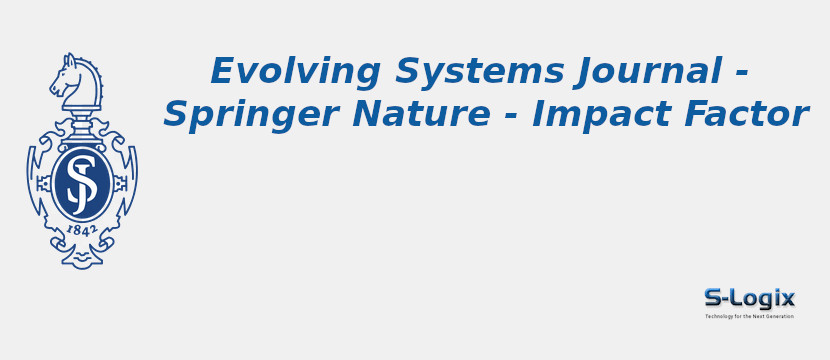Journal Home: Journal Homepage
Editor-in-Chief: Plamen Angelov
Print ISSN: 18686478
Electronic ISSN: 18686486
Abstracting and Indexing: Scopus, Science Citation Index Expanded
Imapct Factor 2024: 2.7
Subject Area and Category: Computer Science, Computer Science Applications, Engineering, Control and Systems Engineering, Mathematics, Control and Optimization, Modeling and Simulation
Publication Frequency:
H Index: 40
Q1: Computer Science Applications
Q2:
Q3:
Q4:
Cite Score: 7.7
SNIP: 1.125
Journal Rank(SJR): 0.701
Latest Articles: Latest Articles in Evolving Systems
Guidelines for Authors: Evolving Systems Author Guidelines
Paper Submissions: Paper Submissions in Evolving Systems
Publisher: Springer Verlag
Country: Germany
